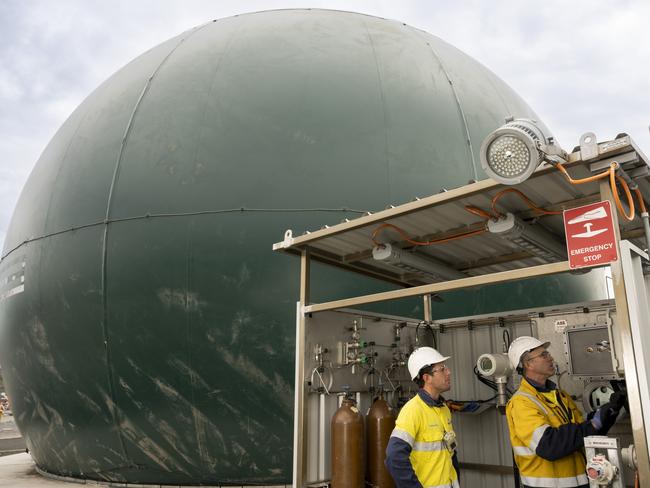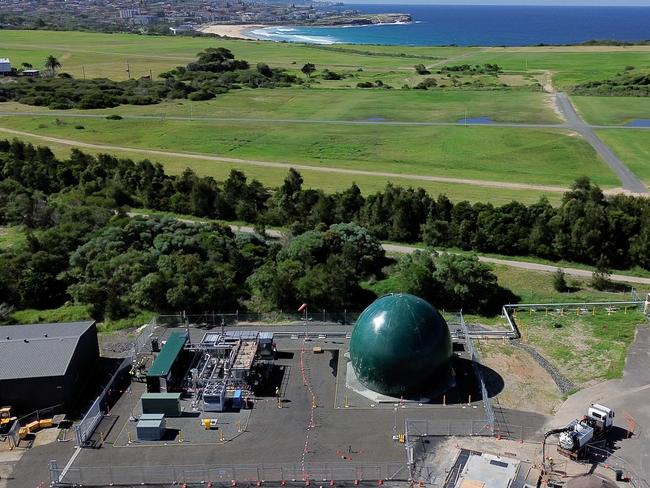How poo will help power Sydney
Experts say users won’t notice any difference, but an unexpected element is about to be added to the gas supply in Sydney – with others set to follow.
Environment
Don't miss out on the headlines from Environment. Followed categories will be added to My News.
A trial project adding fumes from decomposing wastewater into our gas supply is about to commence operations in Sydney – with the potential for the technology to be used across the country.
The taps are about to be turned on at the Malabar Biomethane Plant in southeastern Sydney, a demonstration facility which traps the biogas created as organic waste streams – including agricultural and industrial waste, as well as sewerage – break down.
Gas supplier Jemena will take the resulting biogas, convert it to pipeline-quality biomethane, and blend it in to the natural gas currently pumped to homes via the Sydney network.
Jemena’s Managing Director Frank Tudor said it was a “potential game-changer for Australian energy users”, but consumers would not notice any difference to the little blue flame: home gas will smell and function exactly the same as always.

“We’re forming part of the circular economy,” Mr Tudor said.
“The gas [from wastewater] that was otherwise just being produced and going to atmosphere without doing any useful work, is now doing useful work.”
The facility has a modest initial target, with a production target of 95 terajoules of energy per annum – roughly equivalent to the annual gas consumption of 6300 Sydney households.

Mr Tudor said using biomethane for cooking and heating would help lower Australia’s overall carbon emissions, although the reduction would be small at first.
But similar facilities in Europe, China and the USA have shown gas networks can reduce their emissions significantly by blending in biomethane.
One European study suggested the use of biogas rather than natural gas could cut emissions by 85 per cent, Mr Tudor said.

The start of operations at Malabar comes as the gas industry scrambles to respond to increasing calls for Australian homes to go all-electric as a way to cut down on total greenhouse gas emissions. The ACT now prohibits gas connections for new builds, while other jurisdictions are providing major incentives for households to be fully powered by renewable electricity.
Natural gas networks in Adelaide and Gladstone are using hydrogen blends in some areas to drive down emissions, while facilities in Reedy Creek (NSW) and Caloundra (Qld) are using landfill biogas to produce electricity.
Mr Tudor said the challenge of electrifying Australian homes was “under appreciated”.
“There’s a lot of work to be done by households if they choose to migrate from gas to electricity. If we can offer them a choice that (they) can retain gas and it is renewable gas, we believe that there’s a multitude of benefits that come from that,” he said.
A spokesperson for energy retailer Origin said they were “pleased to be the first retailer to purchase renewable gas from Jemena”.
“We are currently taking expressions of interest from business customers seeking to purchase renewable gas, with pricing at a relatively small premium to non-renewable gas reflecting the higher cost of supply,” the spokesperson said.





